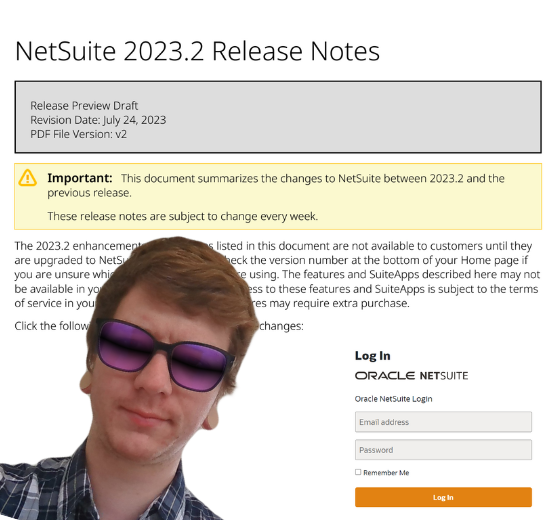The last decade has seen great winds of change for the not-for-profit sector; austerity has disrupted the status quo and caused an overall reduction in donations from individuals. With the latest blow dealt by the global pandemic, the sector has even more problems on its hands.
A whitepaper released in June by Goodbox – a firm that pioneered a contactless terminal to help solve the issues of fundraising in a cashless society – highlighted that in the 12 weeks following the announcement of lockdown, the coronavirus will have caused a £4.3bn shortfall in income for UK charities. Some 91 per cent of charities either have or expect to see their cash flow disrupted, while at the same time, 25 per cent have seen demand for their services increase.
So, in order to maintain and increase donors in unprecedented times, the third sector must look to technology to aid efforts. With many organisations spanning diverse sectors embracing cloud solutions such as customer relationship management (CRM) to help them adapt to the new world, so too must charities get on board with this crucial act of digital transformation. With challenges including high donor expectations, a distrust in charity management (a 2019 YouGov poll revealed that 32 per cent of respondents believe too much money goes into the administration of charities) and a drop in income, attracting, engaging and retaining donors is more important now than ever.
A modern digital collaborative workplace facilitates efficiency
The work-from-home model has been forced upon businesses in all sectors and of all sizes by the global pandemic, but today’s technology has made this development not only possible, but extremely efficient, and it is likely to change the working world as we know it, as we enter a ‘new normal’. The new modern digital collaborative workplace has much to offer, with solutions such as the cloud-based Microsoft Dynamics 365 – the recognised leader in CRM applications – enabling teams to work more efficiently and capitalise on opportunities more effectively. Microsoft Teams offers the ability to chat, share and manage files, information and work tasks among team members, removing the bottlenecks that can occur in organisations when decision-makers are tied up or team members are absent. Moreover, the customisable user interface means that not only is the solution geared up specifically to the requirements of the organisation, but it can also be tailored further to the user, so they only see information relevant to their role. This speeds up processes as workers are not required to trawl through unnecessary information to get to what they need for their role.
In the third sector, this is invaluable as a tool to provide a 360-degree view of the status of donors and volunteers. The management of elements such as fundraising, donor engagement and targeted marketing/campaigns becomes seamless and largely automated. However, charities have been slow to embrace new technologies, with a 2019 study finding that 52 per cent do not have a digital strategy, and 47 per cent are concerned about keeping up with the pace of technology. Now the restrictions placed on the sector during and after lockdown will demand innovation and adoption. The advances in technology allow for the creation of a personalised approach en masse, so those not adopting technology could lose out on vital funds.
Optimising opportunities through better understanding of donor behaviour
Like marketing executed in any other business, for charities and not-for-profits, the rules are just the same. Targeting the donor in a relevant, engaging and meaningful way, and doing so with the foundation of real insights, is key. Microsoft Dynamics 365 allows for the segmentation of donors, such as by donation level or frequency, so that campaigns may be targeted accordingly and a ‘next best action’ can be identified, such as the opportunity to upsell or cross-sell. The solution can be made dynamic so that if the data changes – for instance, a donor increases, decreases or cancels their donation – they are removed from the category they were in and automatically placed in another relevant category so that marketing is always tailored according to changes. Any parameters can be set that can trigger alerts to initiate subsequent actions, to ensure marketing efforts resonate with the donor because of this personalised approach. This is important in a world of higher donor expectation – donors want to feel valued, and no longer want to hand out money without knowing how it is being spent, or that their generosity isn’t being appreciated or used wisely.
A high level of donor management and engagement must be prioritised by the third sector in these challenging times, as this will ensure donors are better engaged and retained in competitive times. Goodbox’s whitepaper, Charities and Coronavirus: Weathering the Storm, reported that despite the current economic uncertainty, a third of donors are giving more during lockdown than usual, so there is still a ripe revenue pool to tap into.
Adapting to changing donor models
The common donor model of regular giving, usually through monthly direct debits, is slowly making way for a new type of donation; ‘direct credits’ are growing significantly. Donors are more likely to give in response to specific appeals, or on their terms as and when they can afford to or are moved to.
So, with a rapidly changing common framework for donating, a dynamic approach is needed in response. Microsoft Dynamics 365 offers the capability for artificial intelligence to help with targeting of the right people with the right approach, based on their previous donating habits and what best resonated with them. Identification of and capitalisation on insights and sentiment is truly automated with this solution, and by taking the human element out of the equation, no opportunities are missed.
Furthermore, the ability to continue to fundraise in an increasingly cashless society is facilitated with Microsoft Dynamics 365, which can be integrated with payment platforms, such as JustGiving. Empowering donors by giving them a fast, secure way of donating with a choice of donation levels and payment methods, for ease, is the way forward as Coronavirus has caused an unwillingness to use cash, and in general, giving online is easier and quicker.
Microsoft Dynamics 365 offers high functionality, flexibility for organisations in the third sector to scale-up marketing efforts, and the opportunity to innovate by acting on insights gained using this futureproof, subscription and cloud-based solution. Effective CRM can take the guesswork out of campaign creation, helping the third sector develop meaningful donor experiences and campaigns that can be monitored and analysed to gain insights that will help charities really connect with their donors – something which must not be overlooked in these unprecented testing times.
We have partnered with a number of charities, such as WaterAid, to implement smart, best-of-breed cloud architecture, and continue to support them on an ongoing basis. If you are embarking on a digital transformation and would like to learn more about Microsoft Dynamics 365, complete our consultation form and one of our experts will be in touch.
Keep reading

What is a NetSuite implementation partner? How do you choose one?

Technology fit for total customer service in 2024

Retail and wholesale distribution: how to improve supply chains

Ditching Sage 1000: what you need to know from businesses that have done it

6 ways AI-ready Microsoft Dynamics 365 helps chartered associations serve members

6 retail and wholesale distribution challenges and how NetSuite solves them

The most exciting features in Microsoft Dynamics 365 2023 Release Wave 2

How to manage a new NetSuite Release: one expert's update process

What’s in NetSuite Release 2023.2?

